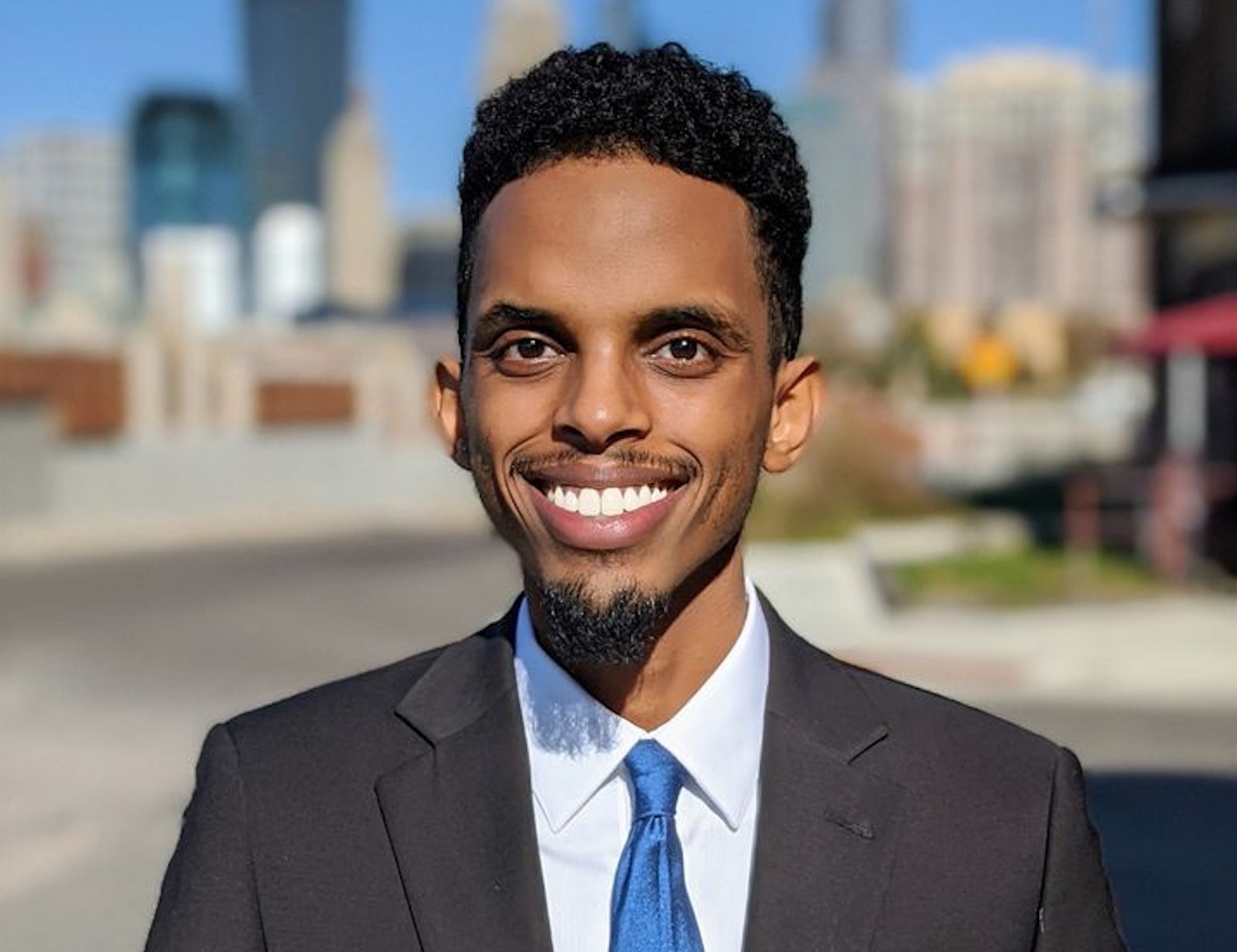Omar Fateh Wins Chance to Bring ‘People Power’ to Minnesota’s State Senate
Minnesotans, Fateh said, “should be able to access the folks that are representing us and make sure that they’re partnering with the community.”

Omar Fateh, who received a key endorsement from his state’s Democratic Farmer Labor Party and went on to beat a long time DFL incumbent, has won his bid to join the Minnesota state Senate for the 62nd District.
Fateh became the presumptive winner after defeating Senator Jeff Hayden in the August primary. As he mounted his campaign, Fateh began strategizing how to become the most effective state Senator possible as a freshman and political newcomer—particularly compared to Hayden, a nine-year incumbent who also served as an assistant minority leader.
During his October interview with The Appeal, Fateh said part of the answer will be to bring “people power” with him to the capitol in the form of community organizations that are advocating for issues including the call to defund the police and the drive to protect renters and build more affordable housing.
Minnesotans, Fateh said, “should be able to access the folks that are representing us and make sure that they’re partnering with the community.”
Fateh’s district seems in need of as much “people power” as possible. He told The Appeal that housing is an urgent issue in his district, where 31 percent of households are getting by on less than $25,000 a year and nearly 42 percent live on less than $35,000 a year. Forty-one percent of the districts’ renters pay at least 35 percent of their annual income on rent.
“There’s a development right near my house where a studio [apartment] was going for $1,400 bucks,” Fateh said, “and this is in one of the poorer districts in Minnesota.”
Minnesota renters who fall on hard times don’t have the law on their side. Current state law allows landlords to file an eviction action in district court the first day a tenant’s rent is late. The law also allows landlords to wait until just seven days before an eviction hearing before giving tenants notice of the hearing.
Despite Governor Tim Walz’s COVID-19 eviction moratorium, this past summer Minneapolis saw the creation of the largest known homeless encampment in the city’s history at Powderhorn Park in Fateh’s district. Residents of the encampment were forcibly evicted by the city in August.
Walz extended his state of emergency orders, including the ban on evictions, until Nov. 12. The emergency order doesn’t include rent relief, so landlords will be able to start filing eviction actions immediately after the state of emergency is lifted.
To address these issues, Fateh plans to support bills to ban evictions during the winter, force landlords to provide “adequate notice” before filing eviction notices, and require municipalities to hold an election before enacting rent control.
“What we’re seeing is that, especially in our district, rent has just been skyrocketing while wages have stagnated, and because of that, because they’re priced out, a large part of the homeless population actually do have a job,” Fateh said. “They just can’t make up the gap between staying in the shelter and the most affordable housing unit.”
Making sure people can afford housing “should be the number one priority,” Fateh said, and added that “to me, [it’s] immoral” for people who work a 40-hour week to be unable to afford rent.
Fateh also plans to advocate for reforms including universal, taxpayer-funded childcare; early childhood education; and a $15 statewide minimum wage.
Fateh told The Appeal that his success in his primary election happened because “we have a lot of folks in this state that are actually shifting more to a working-class focus.” Those voters, he said, want to elect representatives at all levels of government who “represent a working-class agenda,” including affordable housing and healthcare, a living wage, and other progressive priorities.
They also want a state Senator who will be “present, especially in the poorer neighborhoods in the district,”—something Fateh said his predecessor failed to do.
“What we learned here in Minnesota is that it’s not enough to just elect Democrats,” Fateh, who ran to represent the 62nd District, told The Appeal. “We needed progressive Democrats at the legislature.”
Fateh, the child of Somali immigrants, also wants to continue to “bridge the gap” between the African immigrant community and the American culture in which he was born and raised. In one of his positions before running for office, Fateh worked for the City of Minneapolis as a community specialist to improve outreach to African immigrants. African immigrants are a sizable community in the state—according to an estimate by the city, there are 50,000 immigrants from East Africa in Minneapolis alone. As part of his work in this area, Fateh cites the struggle to force Amazon to allow time for its workers from East Africa, many of whom are Muslim, to pray.
“What we know is that the large corporations are going to take advantage of folks, especially if they’re not well versed on their rights,” Fateh said.
